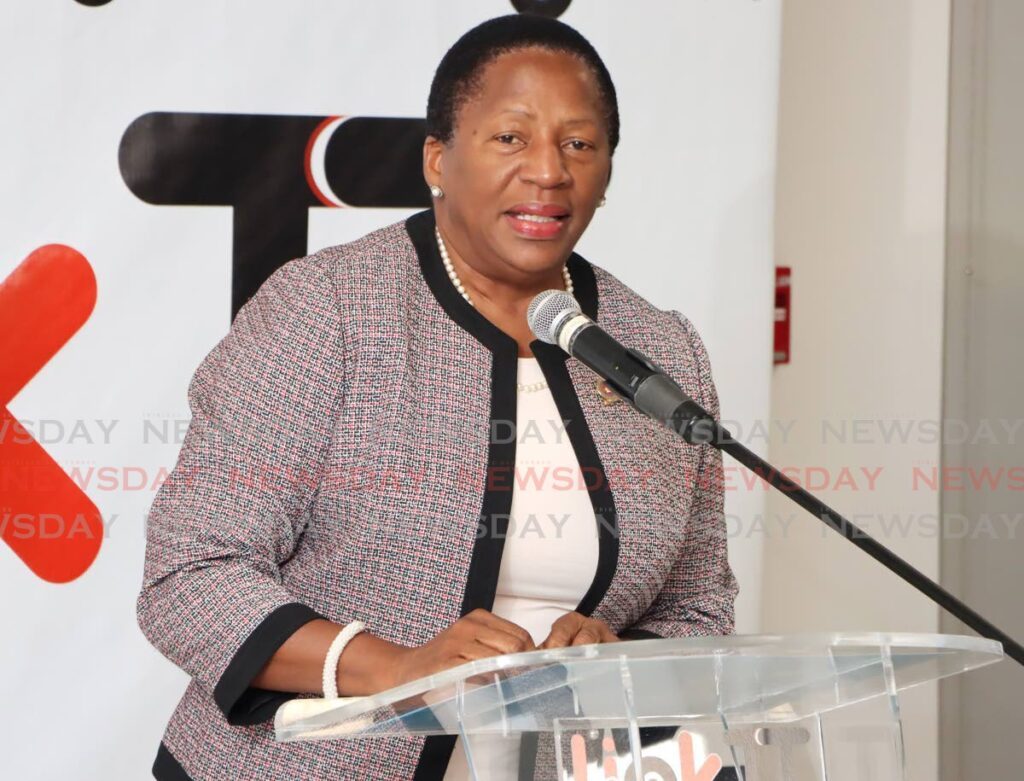

CAN A WOMAN ever lead the PNM?
The question arises considering the selection of Stuart Young, 49, over Pennelope Beckles-Robinson, 63, by the party’s parliamentary caucus on January 6 in the race to find a successor to the Prime Minister.
In a closed-door process, Mrs Beckles-Robinson was agonisingly close to Whitehall, being defeated by a margin of 11-9, with one of the 11 votes being that of Mr Young.
It is unclear whether this outcome will find favour with the wider PNM membership. Already, grandees have criticised the process adopted by Dr Rowley – who has glowingly endorsed Mr Young – as being inconsistent with democracy and the constitution. A special session of the general council has been convened.
Still, the failure of Mrs Beckles-Robinson to clear the initial hurdle of the Tobago “straw poll,” coupled with the fact that a significant number of her colleagues backed her, evokes memories of her history in the party and the wider question of women leaders in Balisier House.
>
The PNM’s modern approach to female leadership can be traced to August 2, 1978, when Eric Williams convened the inaugural session of what he referred to as the “kitchen cabinet.”
According to the late historian Brinsley Samaroo, Dr Williams wished to include more women in governance and this meant giving an increased audience to figures like Marilyn Gordon, Muriel Donawa and Marguerite Wyke.
Innumerable have been the powerful female actors in the party over the decades, from Joan Yuille-Williams to Dr Nyan Gadsby-Dolly.
Still, the differential status of women in the movement has been baked into the party’s constitution, which, like other parties, sets up a Women’s League. There is a lady vice chairman. In today’s world, such arrangements are patronising.
Mrs Beckles-Robinson, the Arima MP, in 2014 challenged Dr Rowley for leadership, losing by 18,121 votes to 1,315. She was made ambassador to the UN before the PM recalled her to serve as Planning Minister in 2022.
Despite her failed challenge, similar to Dr Rowley’s challenge of Patrick Manning, she was seen as retaining a place in the party, unlike Karen Nunez-Tesheira who departed after her unsuccessful bid for leadership.
To all this must be added the layer of Rowley’s own record on gender, particularly his controversial remarks about female crime victims. The language he has used in political exchanges with the opposition leader has often fallen short. He has backed Mr Young, who recently had to apologised for crass and misogynistic remarks.
The UNC has selected a female leader; the country had Kamla Persad-Bissessar as its first woman PM. President's House has been graced by two women one of whom is the incumbent Head of State.
Yet, Mrs Persad-Bissessar herself has been part of a recent global pushback against feminism and the “woke.”
>
Given all of this, it is a serious question we ask: will the PNM ever have a female leader?


